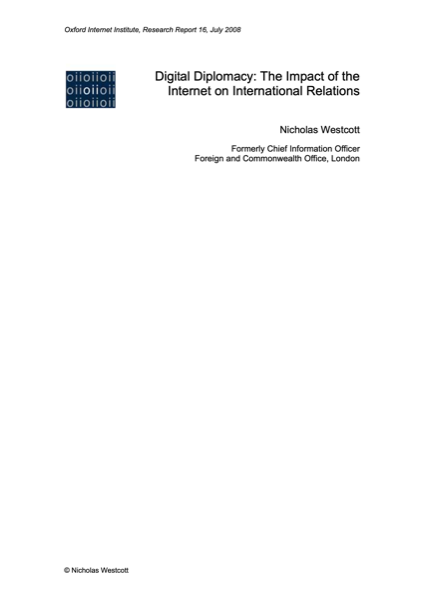
Nicholas Westcott

International relations have always been profoundly affected by technology. The Internet is having just such a profound impact. It constitutes, along with the IT systems it connects, a quantum leap in people’s ability to communicate both one-to-one and one-to-many. Just as ocean-going sailing ships enabled the expansion of Europe in the 16th-18th centuries, the telegraph underpinned the empires of the 19th century, and the aeroplane, radio and TV have transformed international relations in the 20th century, the Internet creates a new set of opportunities and risks for the world. The main difference is that the changes will happen faster.
This report establishes a framework for identifying the internet’s impact on the relations between people across borders and between states. It argues that the internet will have a fundamental impact on international relations, by amplifies the number of voices and interests involved in international policy-making, acerating the dissemination of information, and enabling traditional diplomatic services to be delivered faster and more cost effectively.